The story of Scotland's 1976 Calcutta Cup win - final part
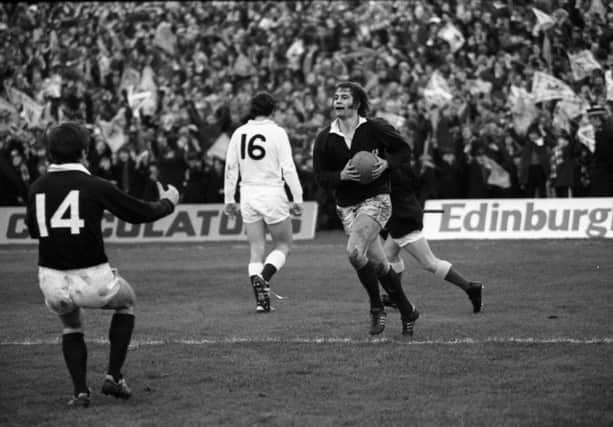

At half time, England held a three-point lead, but by then there had been more than a glimmer of hope for Scotland in the shape of a thrilling try scored by Alan Lawson, created by Shedden with help from the pack. Shedden collected a wayward cross kick and matched Plummer’s trick by surging outside Old and into space, to put Scotland on the attack. Seven players in navy blue rampaged towards the try line, chased by just three white shirts, and the ball went through the hands of Mike Biggar, Sandy Carmichael and Alan Tomes before Lawson was released at the 22 to provide the finishing touch near the posts, beating Plummer’s despairing tackle. Murrayfield erupted. Scotland were back.
Suddenly, a fixture which had generated more apprehension than anticipation at the Scottish Rugby Union was looking a lot brighter than had been predicted. The arrival of the Queen before the match had not provided the diplomatic incident that had been feared, with Scottish nationalism at its 1970s peak, although the situation had required skilful choreography, and the help of the rugby establishment in the West Stand.
Advertisement
Hide AdAdvertisement
Hide Ad“The strong lungs of thousands of rugby supporters in the stand at Murrayfield on Saturday saved the Queen, accompanied by the Duke of Edinburgh and 11-year-old Prince Edward, from open embarrassment as the now traditional chorus of whistles and boos from the terraces greeted the national anthem,” reported The Scotsman.
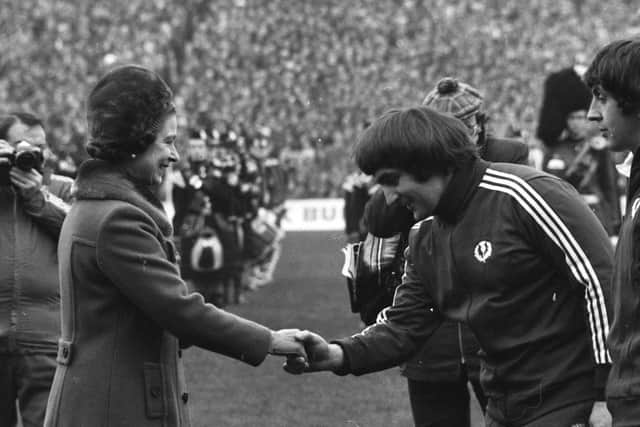

“Extra police on the pitch kept the 70,000 crowd in their places before the Calcutta Cup match started. Palace officials had been apprehensive at the reception the Queen might receive, but as she stepped on to the field with the Duke of Edinburgh to meet the players, she was greeted with a roar of welcome.
“By careful management, the band of the Royal Marines and the pipes and drums of Queen Victoria School, Dunblane, went straight from Scotland The Brave to God Save The Queen with hardly a pause, catching many hecklers unprepared. The stand supporters were soon singing the words lustily, but even from behind the choir, whistling and booing from the rest of the crowd was audible.”
By half time, the Royal visit had been forgotten, and attention was fixed firmly on which side would carry momentum into the second half. Each had lost a winger, Scotland’s Dave Shedden departing with concussion “after bravely confronting the vastly superior tonnage of Andy Ripley” but only after executing “an absolutely classical cover tackle” on England wing David Duckham, whose match – and England career - came to an abrupt end at that moment after his hamstring gave way in the impact.
The belief that this really would be Scotland’s day gripped the crowd when Scotland scored a second try, David Leslie charging down an Old kick to “gather perfectly on the way to the kind of try one has been looking for him to score ever since he first pulled on a Scotland jersey.”
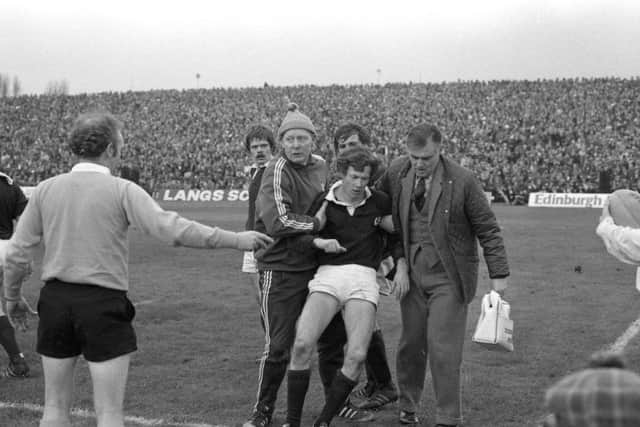

Before long, Scotland had done it again. “Scotland conceded one try but, glory be, scored three” wrote Norman Mair in Monday’s Scotsman, “a veritable glut when you remember that in the whole of the championship last year we amassed only two.”
This time the backs sent Lawson in for his second try which clinched an eventual 22-12 victory, with Billy Steele, Andy Irvine, Ron Wilson and substitute Jim Renwick combining to send the scrum half “through a gap in the English defence about the size of the Mersey tunnel”.
Advertisement
Hide AdAdvertisement
Hide AdThe final act was a glorious break by England’s David Cooke, cut down by a tackle from Sandy Carmichael “that should perhaps take pride of place even among the many choice samples with which the most capped of all Scotsmen has cratered the rugby pitches of the world.”
The celebrations began, but not everyone was convinced that this Scotland side had turned the corner, with the coach and the captain remaining under pressure. Ian McLauchlan may have grinned like a Cheshire cat as he clutched the Calcutta Cup, but he was probably less thrilled to read, two days later, that it was time to put him out to grass.
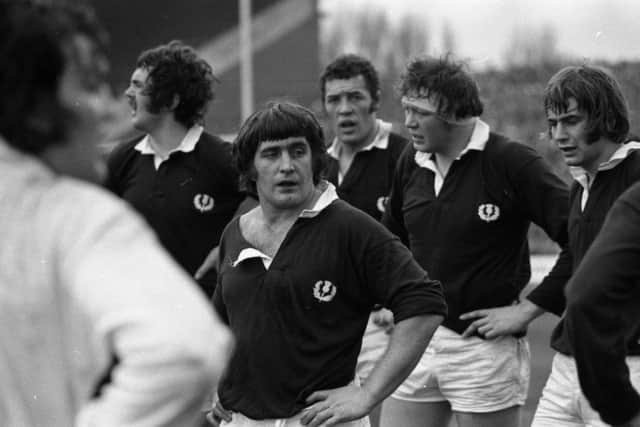

“If the selectors have already determined that they will not get another season out of him, then he should surely go now,” wrote Mair, at a time when Scotland still had one match to play in the championship, the rugby writer going on to suggest that Mike Biggar would be a good choice for captain.
“McLauchlan is the kind of player about whom few are neutral, his admirers and detractors unlikely to change their opinions this side of Armageddon. This is not the place for a fitting obituary on a remarkable career, even apart from the fact that it might prove very premature. What is indisputable is that he has given his whole self to the cause and, as he could come to see in retrospect – though he would take being dropped very hard – short of a Triple Crown or Championship, there could not be many better ways to go than immediately after having led Scotland to victory over the original enemy.”
As it turned out, McLauchlan kept his place, and the captaincy, bowing out three years later after captaining Scotland against the All Blacks.
The real casualties of that afternoon at Murrayfield were two of English rugby’s legendary figures, Duckham and Ripley, who did not play for their country again. The latter could consider himself extremely unlucky, being “jettisoned at his peak”, according to the official history of the Rugby Football Union.
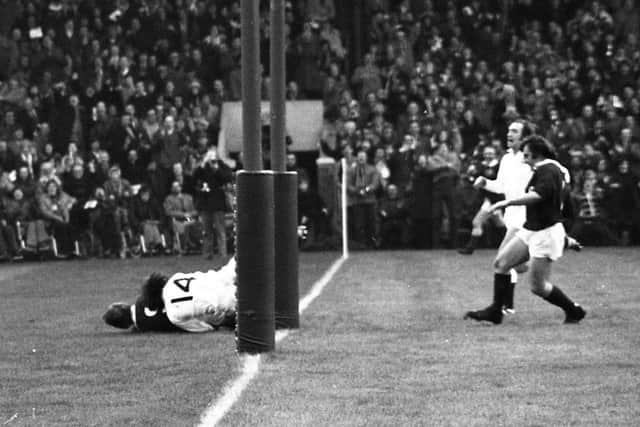

Several others found that their international careers lasted only that one season, as wholesale changes were made the following season. Only Alistair Hignell, Peter Wheeler, Fran Cotton and Bill Beaumont survived the cull to line up in the 1977 Calcutta Cup.
Advertisement
Hide AdAdvertisement
Hide AdIn the heat of the moment, England captain Tony Neary describing the victors as having been “disruptive, feeding on mistakes and mostly only throwing the ball hither and thither when it had already gone loose.” By the end of the championship, the table suggested there had been more to England’s fate than troublesome opponents, as four defeats out of four ensured the wooden spoon’s stay in the Twickenham trophy cabinet was extend to a third year.
READ MORE: